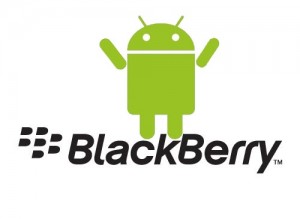 In the near future both Google and RIM will each offer new versions of their portable device operating systems. Google will introduce Android Ice Cream, an OS that integrates all the best features from previous builds into one powerful software. RIM, meanwhile, will update its BlackBerry OS to version 7, an update that many believe will be able to stand toe to toe with the popular Android. In order to separate truth from conjecture, we decided to compare the two operating systems to see which comes out ahead.
In the near future both Google and RIM will each offer new versions of their portable device operating systems. Google will introduce Android Ice Cream, an OS that integrates all the best features from previous builds into one powerful software. RIM, meanwhile, will update its BlackBerry OS to version 7, an update that many believe will be able to stand toe to toe with the popular Android. In order to separate truth from conjecture, we decided to compare the two operating systems to see which comes out ahead.
Web Experience
No longer content with keeping pace with its competitors, RIM has fully upgraded its browser with support for HTML5 and Flash. Furthermore, the tailored made Just in Time javascript engine renders HTML much faster than its predecessors. In fact, benchmarks have shown that the BlackBerry OS 7 outperforms the iOS, Windows Phone 7, and Android in loading web pages.
Android Ice Cream also provides a faster experience than its predecessor, Gingerbread. Flash and HTML5 content load quickly, with easily manageable tabs. The fact that it still runs slower than the BlackBerry OS 7 is a testament to RIM’s development team.
Winner: BlackBerry OS 7
Accompanying Hardware
RIM has a panoply of portable devices set to hit the market in the fourth quarter, each aimed at taking advantage of the BlackBerry OS 7’s capabilities. High resolution touchscreens combined with 1GHz CPUs will provide users with a reason to upgrade beyond the software.
Similarly, Google will be introducing a variety of new hardware to accompany the release of Android Ice Cream. As the platform is designed for both tablets and smartphones, everything from Samsung’s elite Galaxy S2 to the svelte Google Nexus Prime will run Ice Cream. The amount of choice in hardware ultimately trumps the relatively niche offerings from RIM
Winner: Android Ice Cream
Ease of Use
In terms of usability, the BlackBerry has never been on the same level of its competitors. That all changes with the OS 7, as a variety of tweaks have been made to make the device user friendly. The menus have been cleaned up, and cycling through apps is much more intuitive. The BlackBerry Balance function also allows users the option to demarcate their private and professional lives into separate spaces.
Android Ice Cream’s main selling point is personalization. It’s open source software provides a number of apps, widgets and shortcuts to create an operating system catered to your needs. Nevertheless, in terms of raw usability, the BlackBerry OS 7 offers more out of the box, and is especially ideal for users unaccustomed to a lot of tinkering.
Winner: BlackBerry OS 7
Applications
BlackBerry’s App World provides high quality apps for relatively cheap. Most of the popular social networking apps are included, with professional functions prioritized. Naturally, as a device for business people the BlackBerry App World has a dearth of gaming and other fun oriented apps.
The Android app market, conversely, has apps for people of all professions and inclinations. Moreover, over 70% of these apps are free of charge, supported by advertisements rather than direct purchases.
Winner: Android Ice Cream
In summation Android Ice Cream and the BlackBerry OS 7 each excel in their own market. The BlackBerry’s simplistic interface, limited hardware and business apps are tailored for professionals, whereas Android Ice Cream seeks a far less specific market.
Article written by Adam Richards from Mobile Broadband UK. Adam writes on a wide range of broadband topics including mobile broadband pay as you go.
Originally posted on September 29, 2011 @ 5:13 pm
